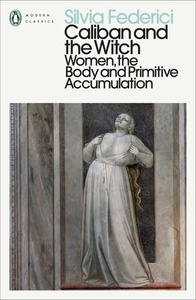Take a photo of a barcode or cover
Would I recommend Caliban and the Witch? Yes, I think so. Perhaps it would be best to buy a second hand copy or borrow it from a library if you’re uncomfortable giving money to this particular author, but I don’t think it’s a book that ought to be avoided outright. It’s interesting, I learnt a lot from it, and I’d consider it a solid demonstration of Marxist feminism.
Graphic: Death, Homophobia, Misogyny, Physical abuse, Racism, Sexism, Slavery, Torture, Violence, Blood, Antisemitism, Colonisation, Classism
Moderate: Ableism, Animal cruelty, Animal death, Body horror, Child abuse, Child death, Confinement, Domestic abuse, Genocide, Gore, Infidelity, Racial slurs, Rape, Sexual assault, Sexual content, Sexual violence, Slavery, Excrement, Medical content, Trafficking, Cannibalism, Abortion, Murder, Pregnancy, Fire/Fire injury
Minor: Incest, Infertility, Mental illness, Suicide, Transphobia, Police brutality, Islamophobia, Kidnapping, Grief, Abandonment, Alcohol, War
Anyway, it's a book about the history of capitalism, especially how it affected the role of women in society. How the costs of production -- reproduction, caring for and feeding a family -- were outsourced, how women's knowledge and wisdom was undermined and devalued, how the period of witch hunts served to collectively break the resistance of all women, and to separate them from an earlier society in which they had more respect and autonomy.
Full of ideas and contexts that hadn't occurred to me before -- this book blew my mind on a regular basis. Not a perfect book -- some arguments felt like overreaches, but considering the scope of history it's discussing, and the slimness of the volume, it packs quite a wallop.
Will definitely affect the lens through which I examine history for quite some time.
Graphic: Misogyny
Moderate: Body horror, Genocide, Infertility, Miscarriage, Excrement, Antisemitism, Cannibalism, Abortion, Colonisation









